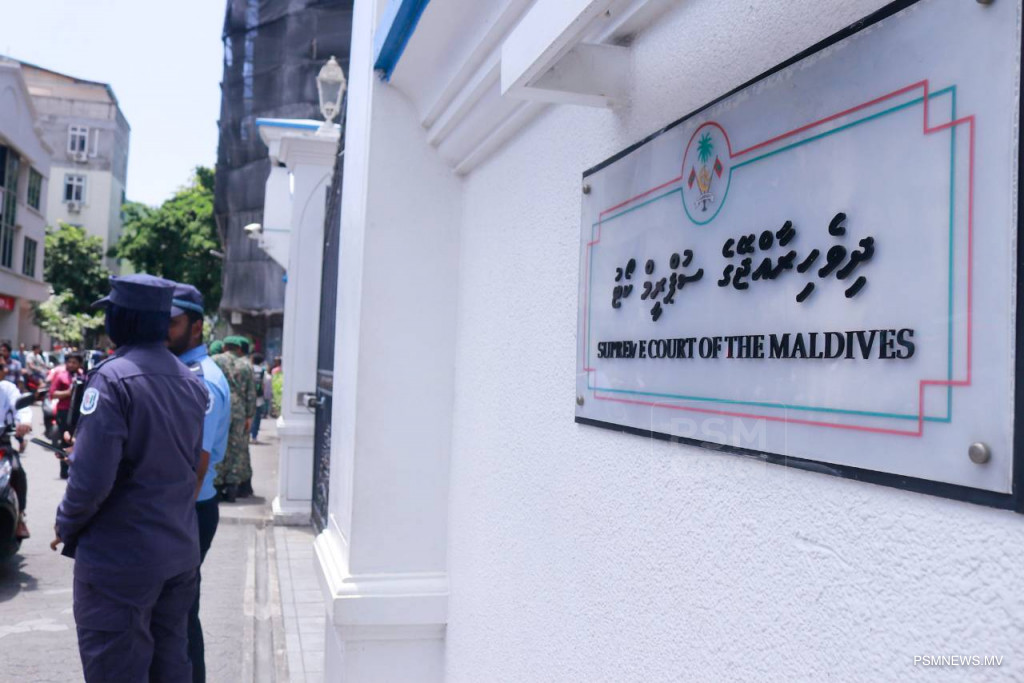Male’, Maldives – The Supreme Court hearing held Monday, overturned the previous High Court ruling and reopened a probe into the confiscated phones belonging to the then-Airport Division Head Abdullah Ali. The investigation concerns the registry of a Mercedes Benz S600 vehicle, given to Former President Abdullah Yameen Abdul Gayyoom via his then-Chief of Staff Ahmed Mustafa.
Mustafa allegedly registered the Mercedes Benz S600 gifted by the Saudi Arabian government to the Maldivian government under his own name. The armored car, valued at USD 4.5 million, made its way to the Maldives from the Saudi Government just ahead of the 2018 presidential election.
The documentation from the President’s Office regarding the car confirmed that vehicle, already registered to Mustafa, was frequently used throughout his tenure by President Yameen Abdul Gayyoom, under the supervision of Maldives National Defence Force. According to the customs documents, the car was addressed to Mulee-aage (the presidential residence).
Having identified the above discrepancies, the Anti-Corruption Commission (ACC) launched an investigation into the case and obtained the relevant documents from Maldives Customs Service and the Transport Ministry.
Abdullah Ali was named a person of interest in the case under allegations that he falsely filed documentation to register the car to a private individual. ACC raised charges of misusing power and position against the Former Head of Airport Division Abdullah Ali, demanding that his phones, sim cards and memory cards be confiscated as assets to the investigation.
The Criminal Court sanctioned the order as per ACC’s request but was later overturned by the High Court under an appeal filed by Abdullah Ali.
Initially, the High Court Judges presiding over the case were split over the verdict, with Judge Mohamed Faisal and Hussain Shaheed voting to dismiss the lower court ruling while Judge Mohamed Niyaz opposed the decision, noting that there was no legal reason to dismiss the lower court ruling. Following the High Court’s majority decision, the Prosecutor General appealed the case to the Supreme Court, which then dismissed the High Court ruling.
One of the issues highlighted in the High Court ruling concerned the formatting of the order issued by the Criminal Court and concern over possible legal precedents. However, the Supreme Court decreed there to be no outstanding flaws in the Criminal Court ruling and that all necessary details had been incorporated.
The apex court also criticized the lower court’s ruling stating that it does not make sense for a court order to lose legal power over a difference in format.
Acknowledging that some information from the model format was missing from the Criminal Court order, Supreme Court noted details that were not prescribed in the model format included in the ruling. The court stated that therefore, if the lower court ruling were to be dismissed due to a difference in the format it should be based on that of the model, adding that the constitutional format itself needed to be amended.
Moreover, the appeal filed by Abdullah Ali at the High Court stated that the Criminal Court order violated his right to personal information, as the order called for all of his phones to be confiscated without specifying a certain gadget. However, the Supreme Court concluded that the mere statement that his rights were violated did not suffice as an argument, as he had failed to specify the category(categories) affecting his civil liberties.
In his appeal, Abdullah Ali also noted that the Criminal Court ruling exceeded that which was requested for by the Anti Corruption Commission. He said that the court order called for the confiscation of all his phones rather than one and that a duration of 30 days was given instead of the 12 days initially sought. Highlighting this issue, the Supreme Court detailed that the court has the authority to issue an order for the confiscation of “phones” rather than “a phone” if the court cannot presume knowledge of the exact number of phones in the individual’s possession. Further, they stated that the presiding judge holds the right to decide the period of duration for any such court order.





